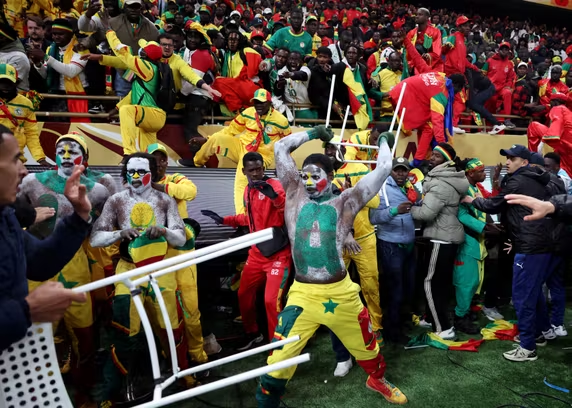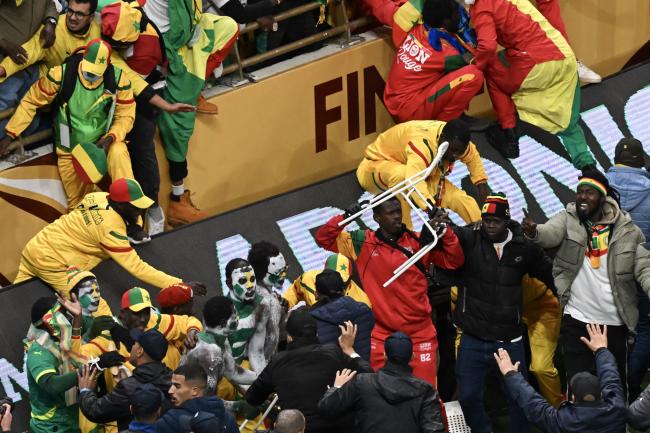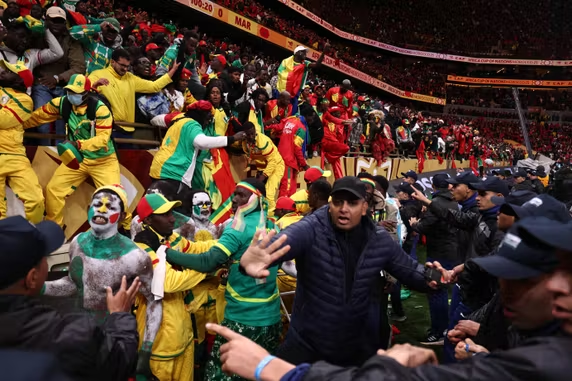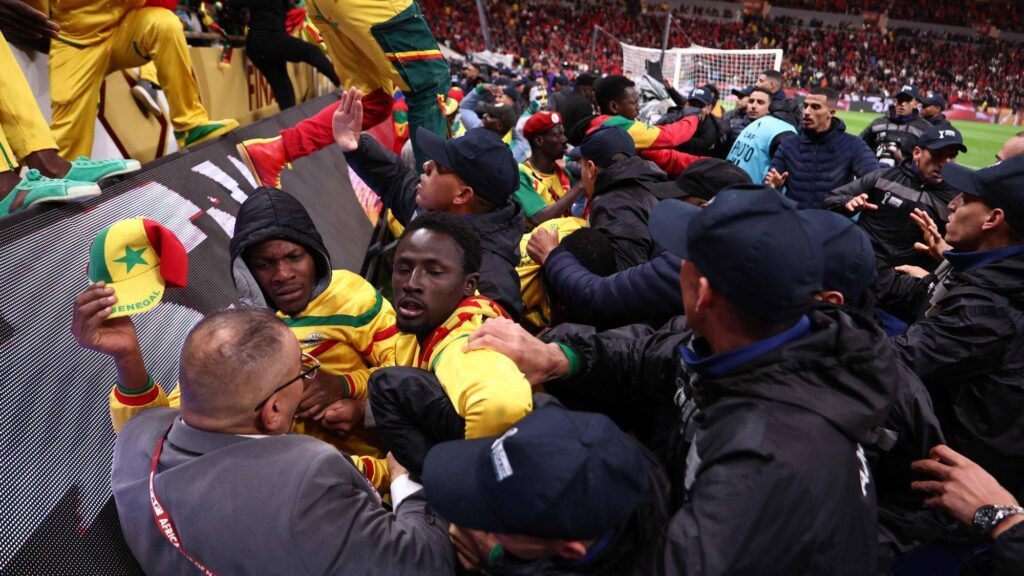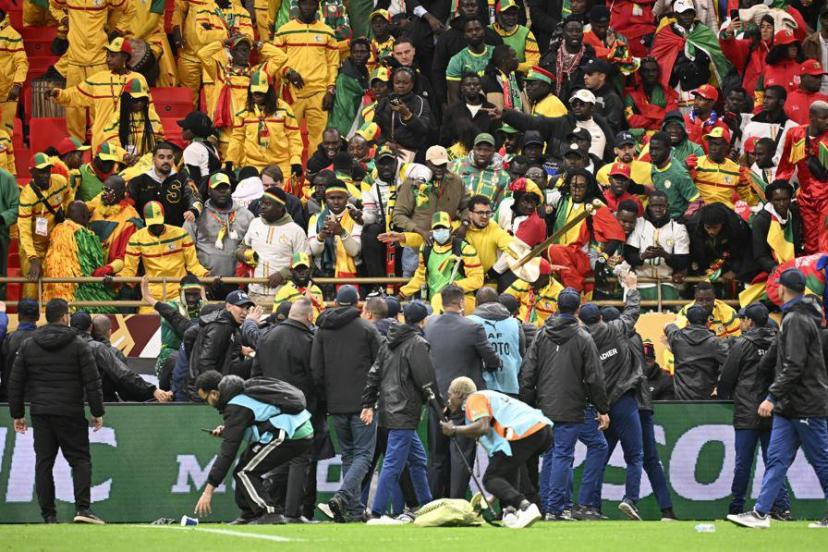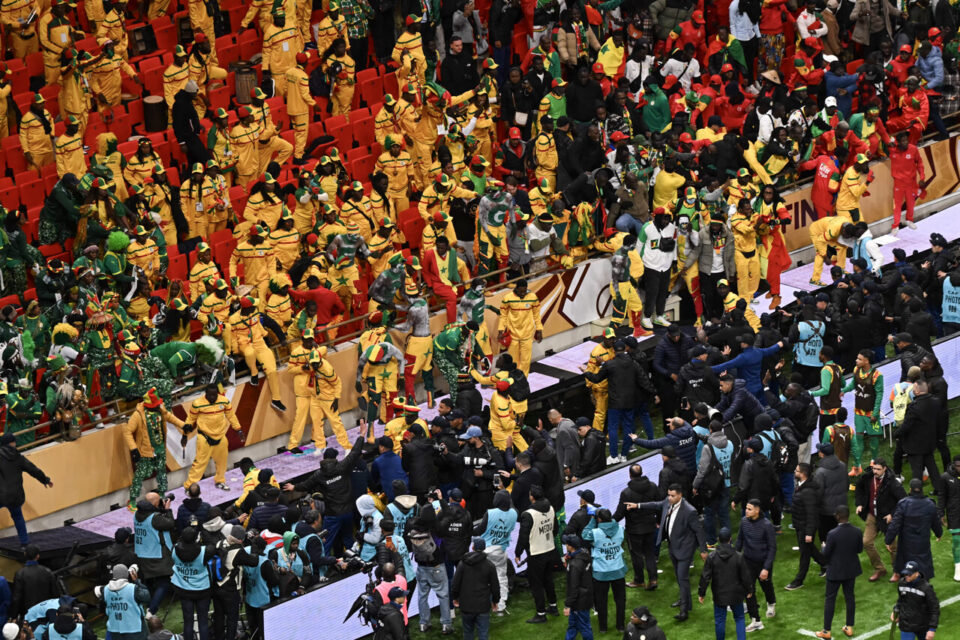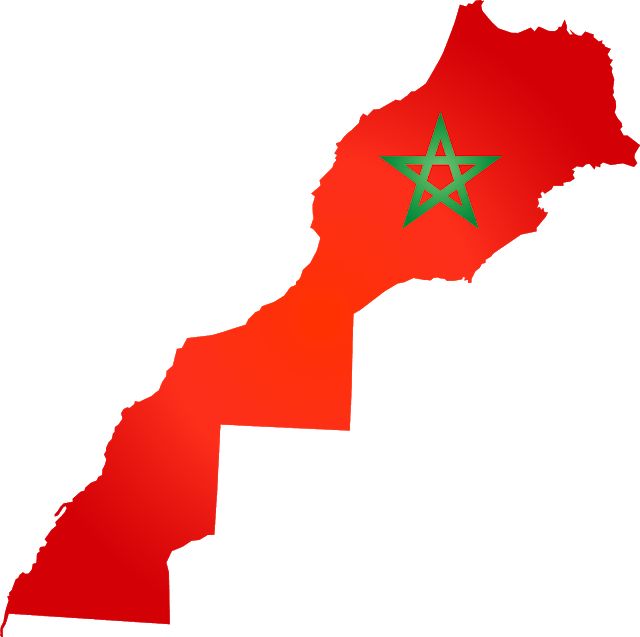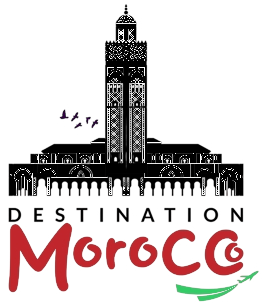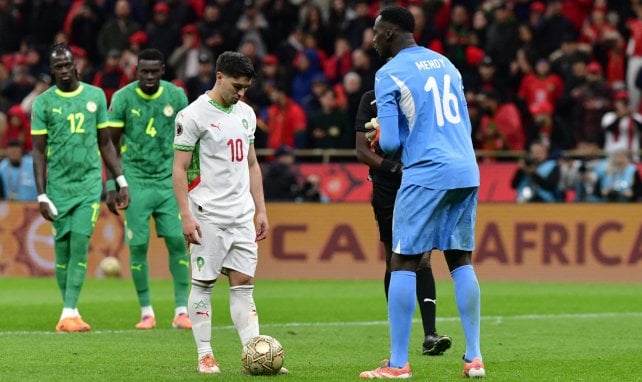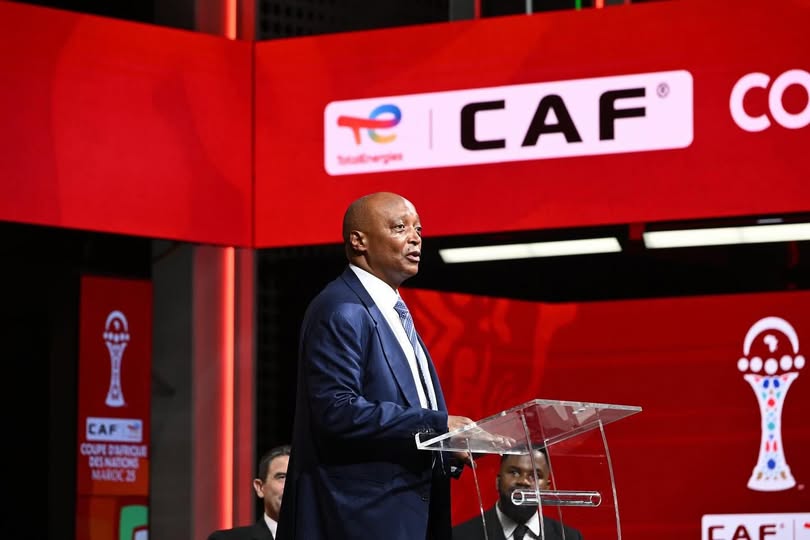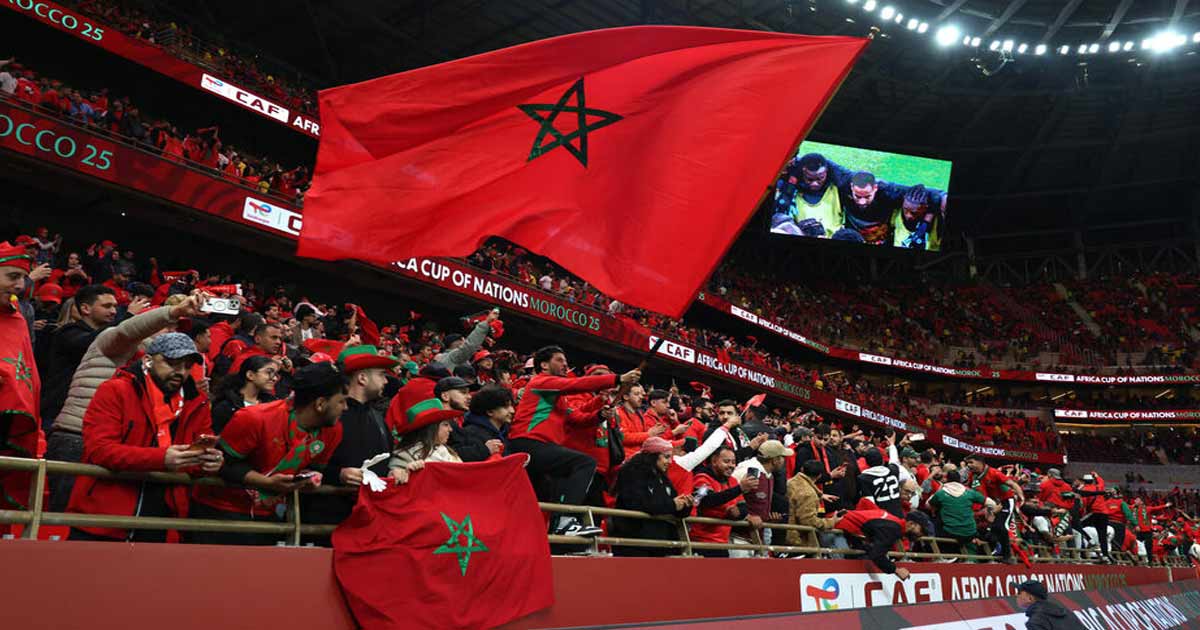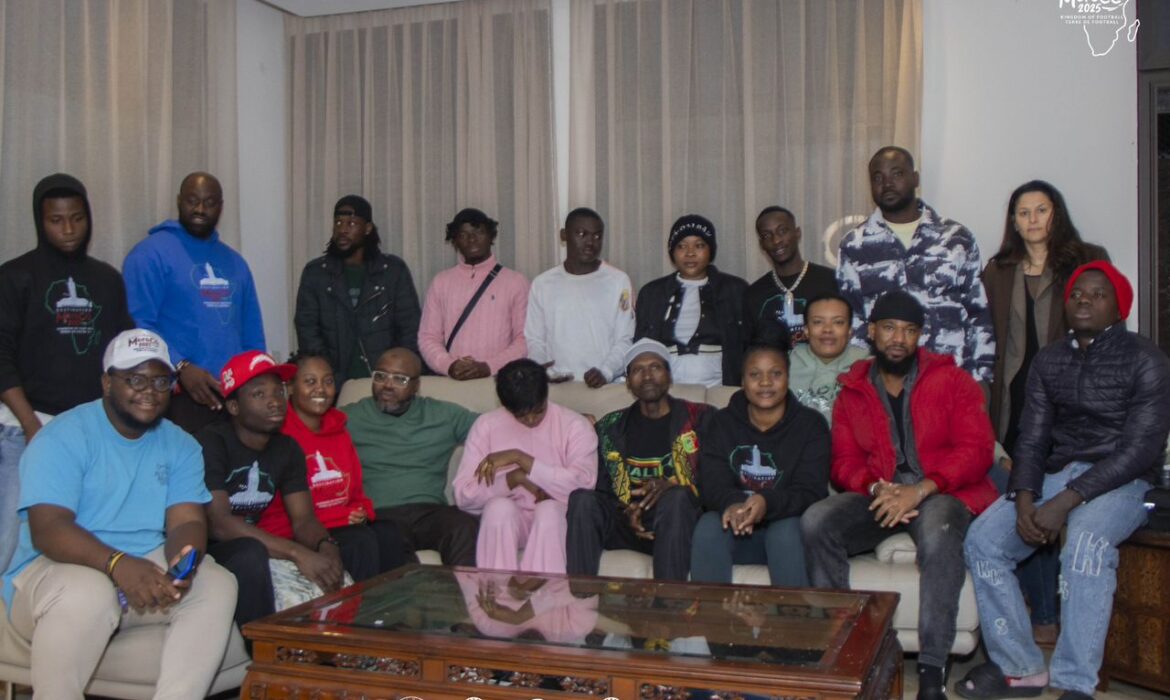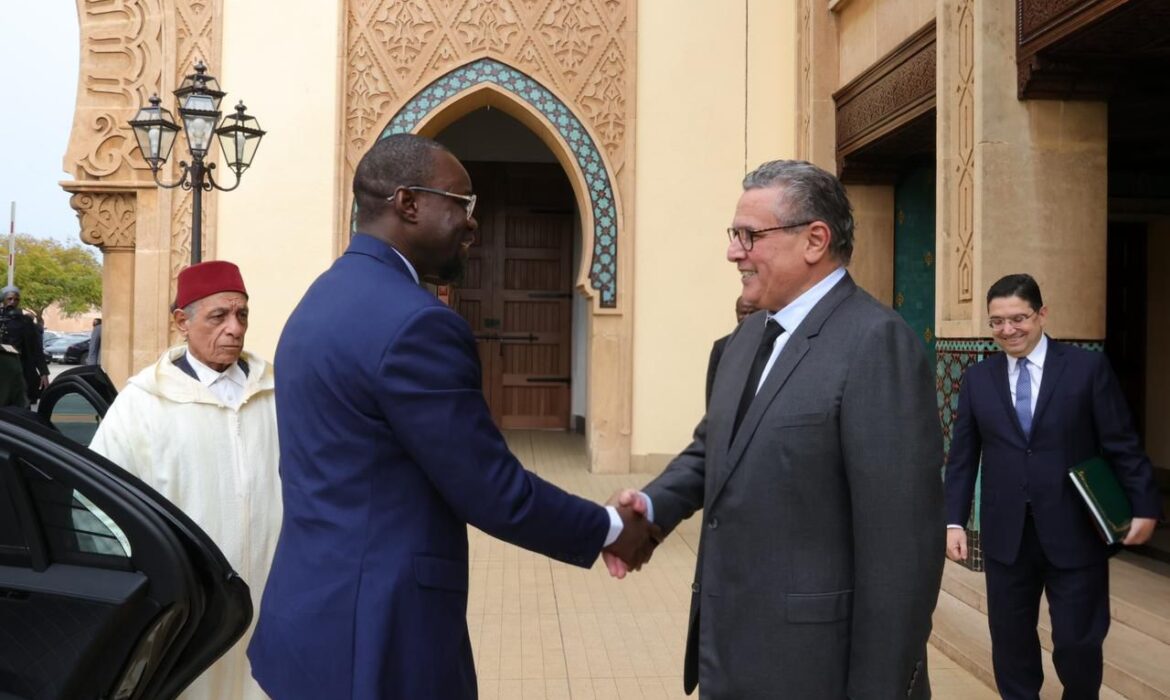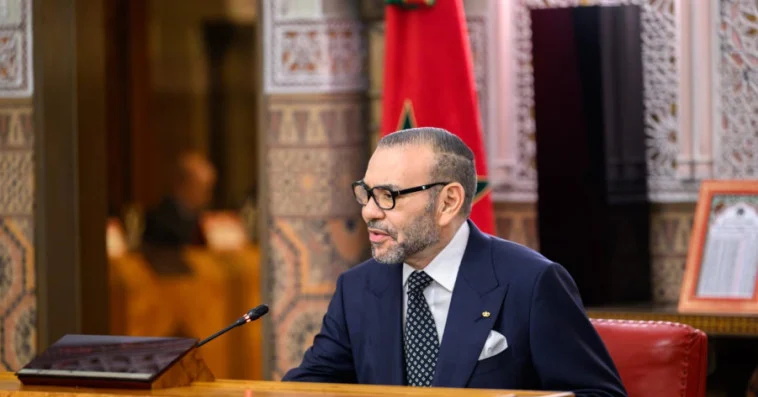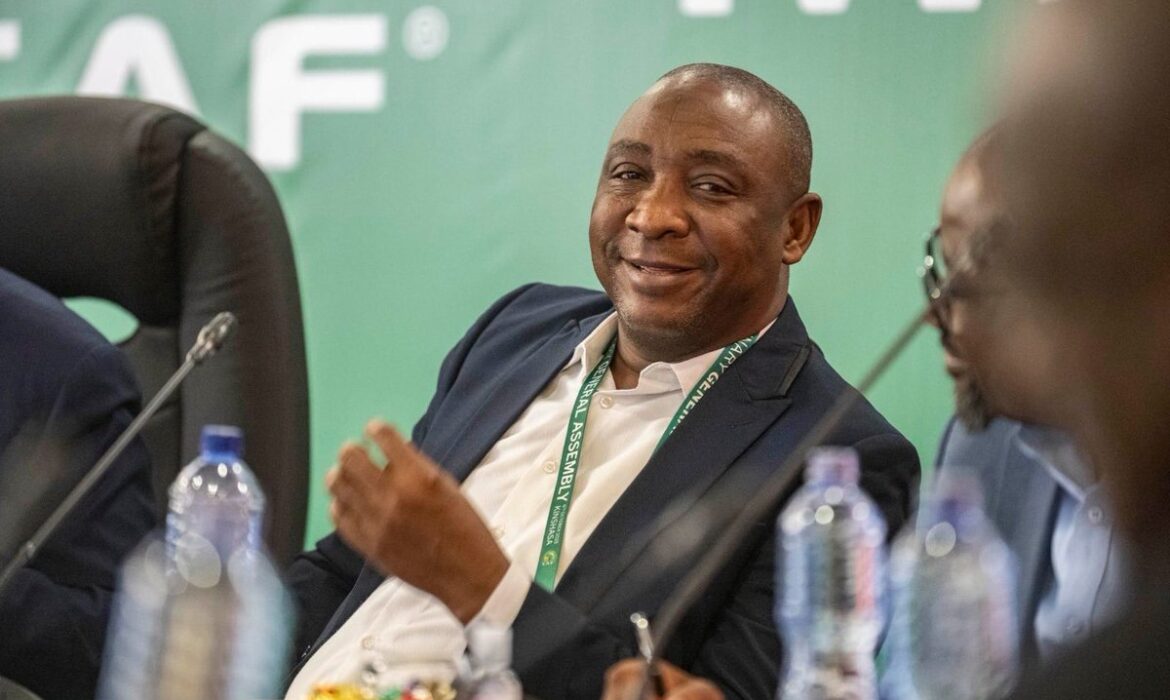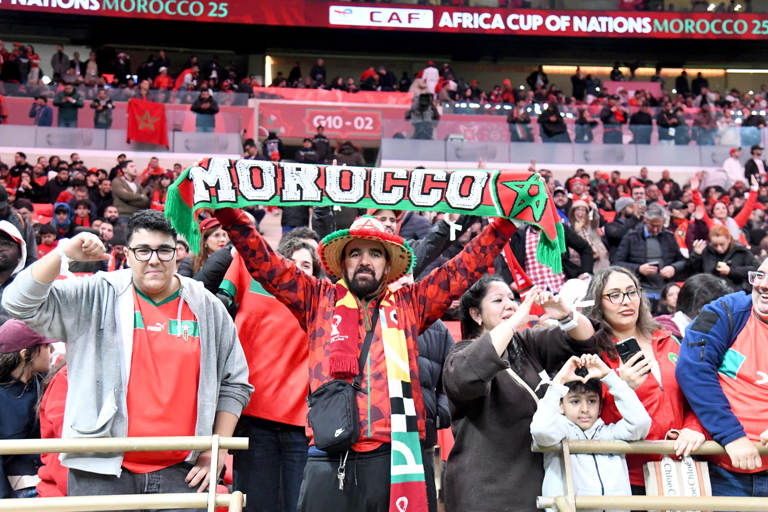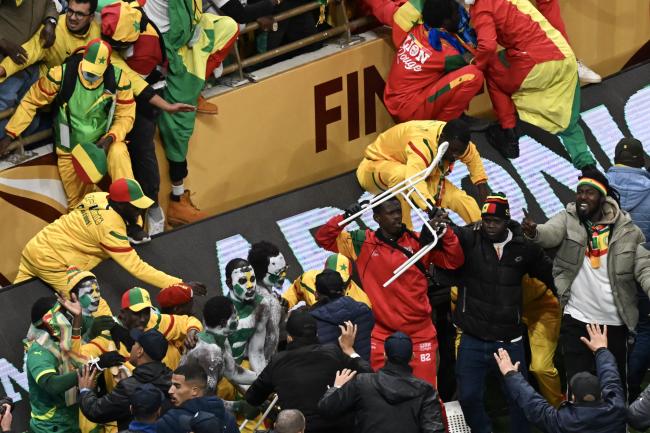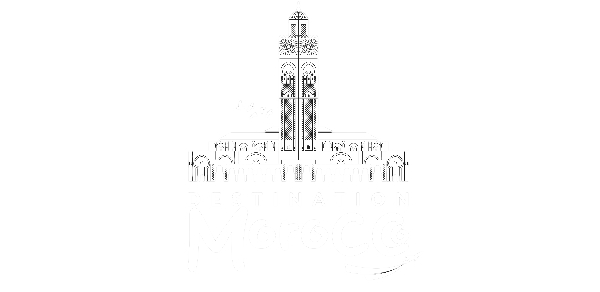AFCON 2025 Final: FRMF Files Appeal Against CAF Disciplinary Sanctions
The Royal Moroccan Football Federation (FRMF) has announced that it has filed an appeal against the disciplinary sanctions issued by the Confederation of African Football (CAF) following the 2025 Africa Cup of Nations final against Senegal.
In an official statement, the FRMF said the appeal concerns serious incidents that occurred during the match played on January 18, 2026, including the temporary withdrawal of Senegalese players and staff from the pitch, as well as pitch invasions by supporters.
According to the Moroccan federation, these incidents disrupted the normal flow of the final. The appeal seeks a review of the disciplinary decisions taken by CAF’s competent bodies.
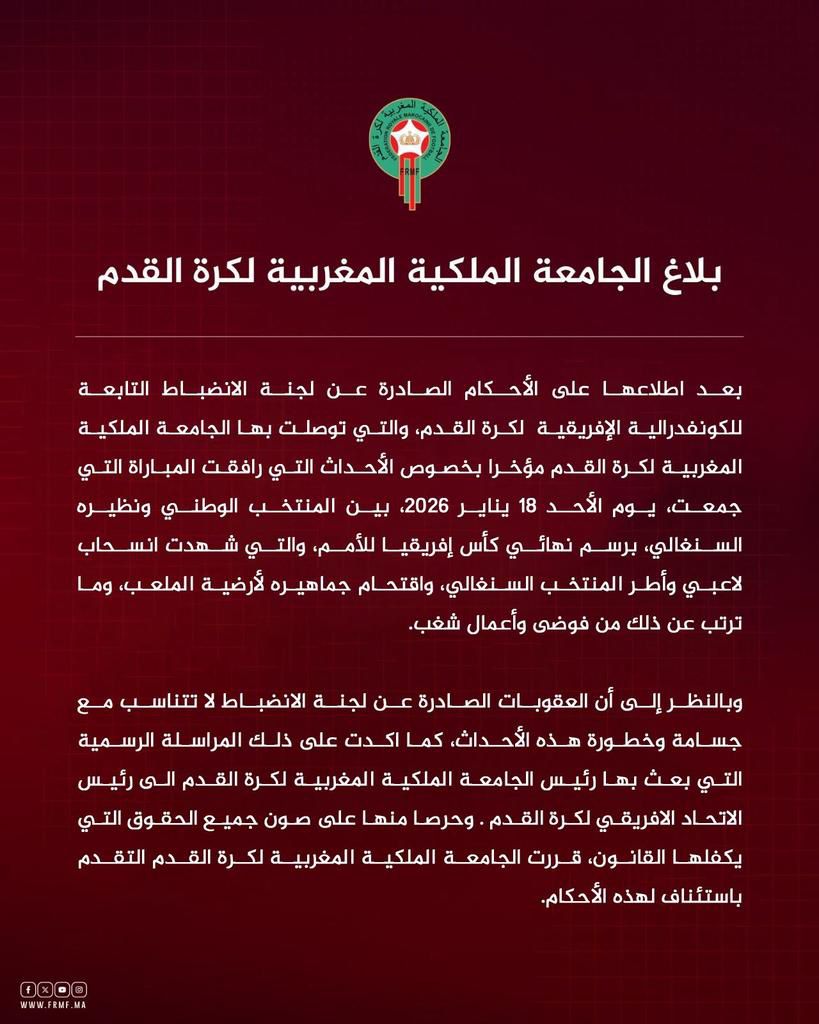
AFCON 2025 final: CAF president calls for regulatory review after disciplinary rulings
CAF President Patrice Motsepe has addressed the aftermath of the disciplinary sanctions imposed following the AFCON 2025 final held in Morocco, reaffirming the confederation’s commitment to protecting the credibility of African football.
Dr. Patrice Motsepe, President of the Confederation of African Football, said
« I am absolutely determined, as are the CAF Executive Committee (COMEX) and the Presidents of CAF Member Associations, representing 54 African countries, to preserve and strengthen the integrity, reputation, and global competitiveness of African football and CAF competitions. I was deeply disappointed by the unacceptable incidents that occurred during the final of the TotalEnergies CAF Africa Cup of Nations, Morocco 2025.
I have taken note of the decision handed down by the CAF Disciplinary Committee, announced on Wednesday, January 28, 2026, and I fully respect all decisions made by our judicial bodies, which I will strictly comply with.
I have convened a meeting of the CAF Executive Committee (COMEX), CAF’s highest decision-making body outside the Annual Ordinary General Assembly, to review CAF regulations, including the Disciplinary Code. This review aims to ensure that CAF’s judicial bodies have sufficient powers to impose appropriate and dissuasive sanctions in cases of serious violations of CAF’s Statutes, Regulations, and Disciplinary Code, as well as for any behavior that seriously damages the reputation, integrity, respect, and global competitiveness of African football and CAF competitions.
In recent years, we have significantly improved the quality, integrity, independence, skills, and expertise of African referees, VAR operators, and match commissioners. We are determined to allocate additional financial resources and enhanced technical expertise to ensure that the quality, integrity, impartiality, skills, and expertise of African referees, VAR operators, and match commissioners are comparable to the best in the world.
One of the first decisions I made upon becoming CAF President was to ensure the independence and impartiality of the CAF Referees Committee, which is composed of members nominated by the 54 CAF Member Associations, as well as the most qualified and respected referees on the continent. It is essential that African referees, VAR operators, and match commissioners are perceived, respected, and recognized as impartial, fair, and world-class.
I am confident that with the additional reforms and far-reaching measures we are putting in place, African football and CAF competitions will continue to be respected, admired, and ranked among the best in the world. «
AFCON 2025: Morocco announces significant revenue from hosting the tournament
Morocco has reported €1.5 billion in revenues from hosting the 2025 Africa Cup of Nations, according to official figures released by the government on January 26, 2025.
The tournament, held from December 21 to January 18, marked the 35th edition of AFCON and generated significant income through sponsorship deals and ticket sales. Prior to the opening match, revenues had already reached €300 million, a record equal to the combined total of the previous four editions.
Authorities attribute these results to a high-level organizational framework and modern infrastructure meeting international standards.
However, revenues do not equate to net profit. The Moroccan government invested €2.3 billion in stadium renovations, road networks and airport upgrades, including the Prince Moulay Abdellah Stadium, which hosted the opening match and the final.
As a result, the event shows an estimated temporary deficit of €800 million, which officials expect to offset in the long term, particularly ahead of the 2030 FIFA World Cup.
La Casa Del CAN: a remarkable success!
La Casa Del CAN has closed its doors, but the experience remains deeply rooted. More than a concept, more than a content hub, this Phase 2 of project « Destination Morocco 2025: Terre de Football; Kingdom of Football » has been an intense, demanding, and revealing human adventure. It echoes the resounding success of the project’s first stage: the Cotonou–Rabat road trip, which had already captured imaginations with its energy, creativity, and ability to connect Africa through football.
For several weeks, La Casa Del CAN was a home before it was a production space. A house inhabited by talents from diverse backgrounds, each bringing their sensitivities, rhythms, visions, and vulnerabilities. The AFCON was experienced here away from the stands, but up close with humanity: in late-night discussions, constructive disagreements, shared laughter, accumulated fatigue, spontaneous support, and silences that sometimes spoke louder than words.
The experience was enriched by the remarkable visits of Momo de Paris, Simo Sedraty, La Jaguar, Lassissi, and many others. Each brought their energy, stories, and perspective on Africa, strengthening the lively and open character of La Casa Del CAN.
What this adventure revealed above all was the complexity and richness of African cohabitation. Cultures met, personalities clashed, egos learned to step aside for the collective. Nothing was smooth, and that is precisely its value. Real Africa is not told in a fixed set, but in movement, constant adaptation, and the ability to build together despite differences.
Creatively, La Casa Del CAN became a laboratory. Vlogs, live streams, short formats, debates, life moments, premium content: each day was an attempt to tell AFCON differently. Not just football, but what it triggers: emotions, conversations, identities, passions, and sometimes tensions. Content was not merely a goal; it reflected a shared daily life.
On a human level, the experience was formative. It challenged everyone to listen, collaborate, handle pressure, respect others, and self-reflect. La Casa Del CAN didn’t just produce images; it forged bonds, created lasting memories, and left deep lessons about collective work on a Pan-African scale.
This adventure could only have happened in Morocco. A welcoming land, an African crossroads, a convergence space, the Kingdom provided the setting, stability, and openness necessary for this human and creative experiment. Through La Casa Del CAN, Morocco once again demonstrated its ability to unite, connect, and project African youth into ambitious and modern narratives, perfectly aligned with the vision of His Majesty King Mohammed VI.
La Casa Del CAN therefore ends without a real conclusion. What was experienced goes beyond the timeline of the competition. The images will continue to circulate, the formats will continue to be consumed, but above all, the human, professional, and creative trajectories started here will continue far beyond.
Quick-Witted Management, led by Zelkifli Ngoufonja, achieved its goal: to transform AFCON into an intimate, collective, and deeply African experience. A CAN lived from within, told by those who live it, with all its strengths, imperfections, and truth.
La Casa Del CAN closes its doors.
But the story continues.
Photo gallery
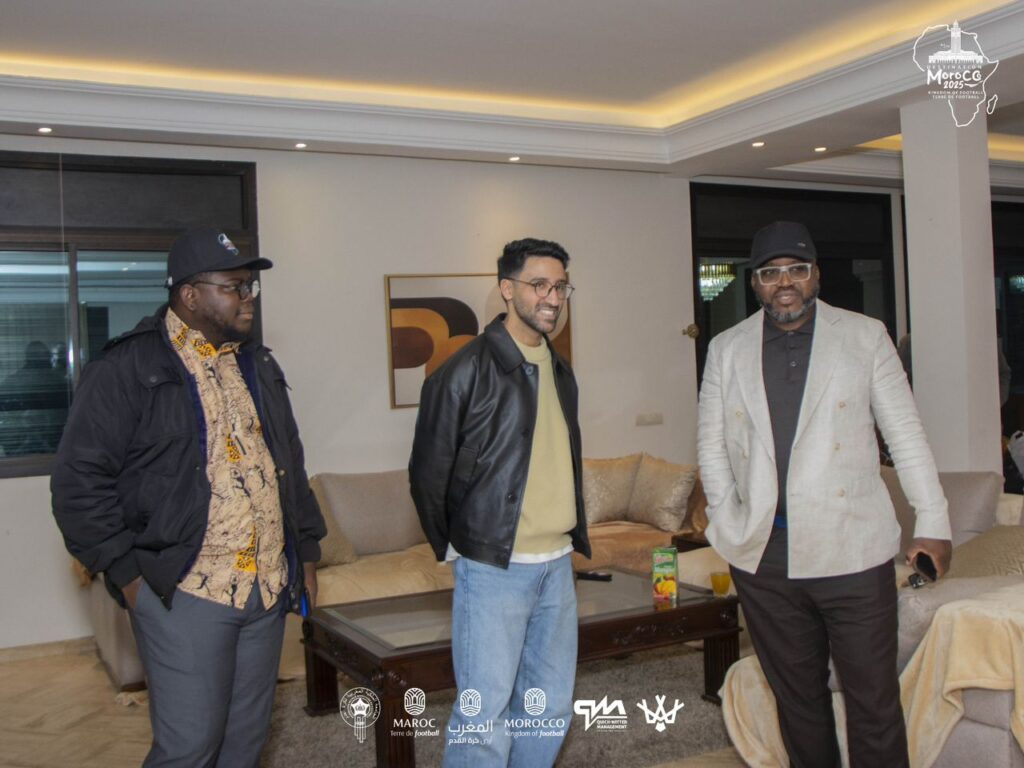
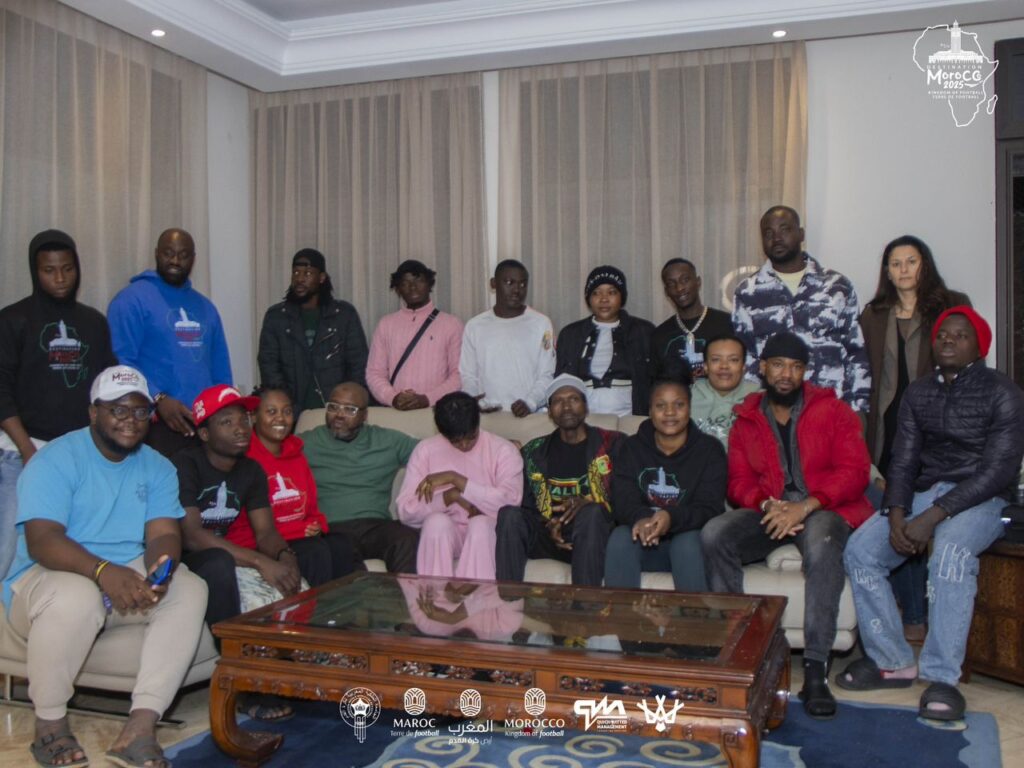
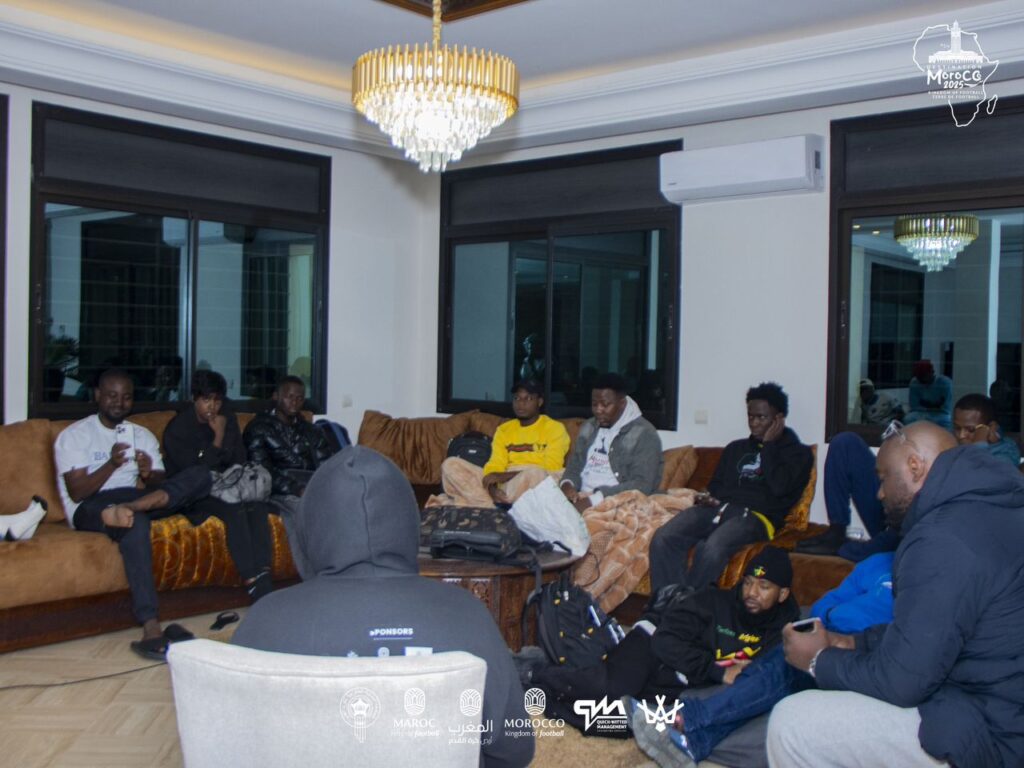
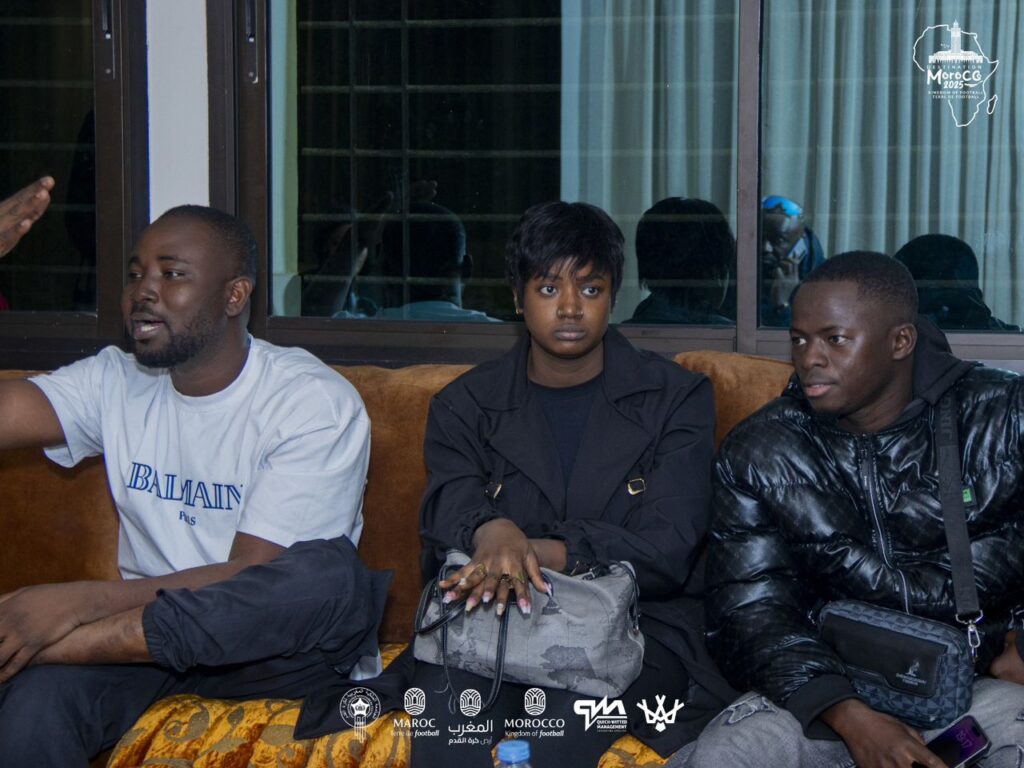
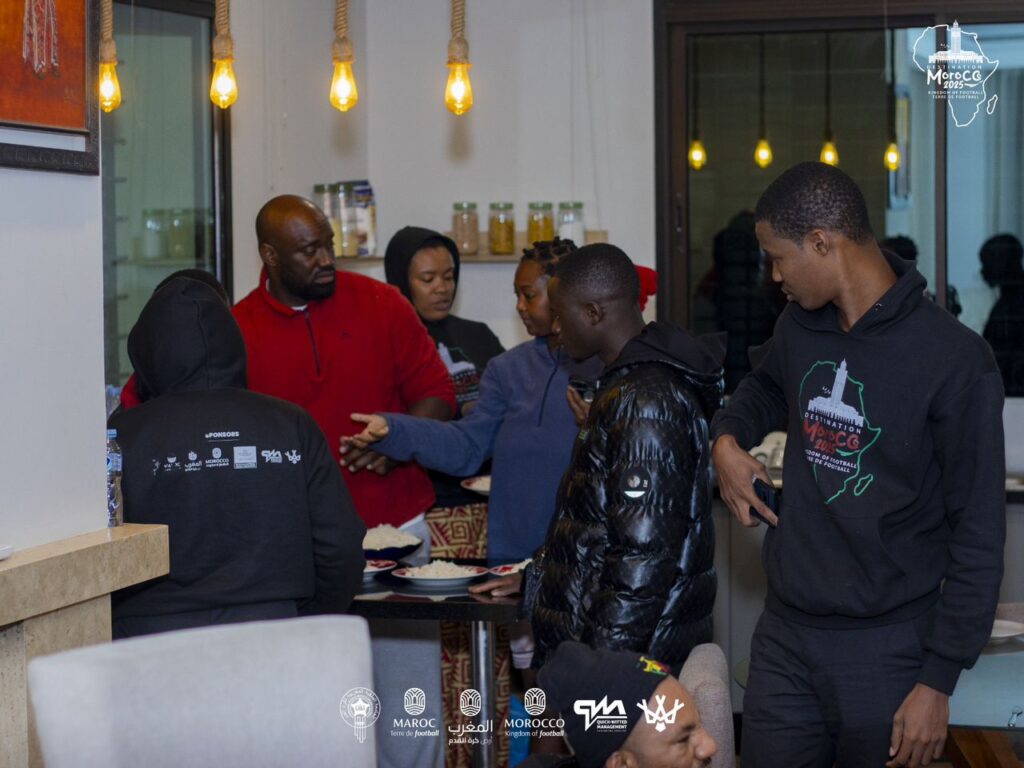
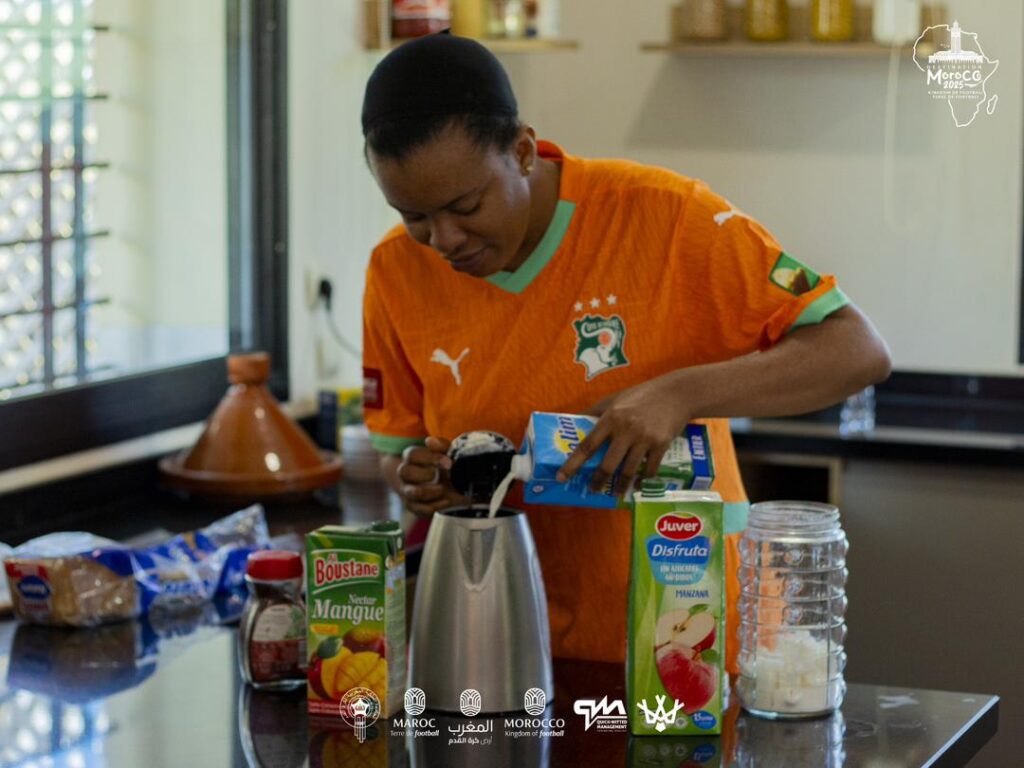
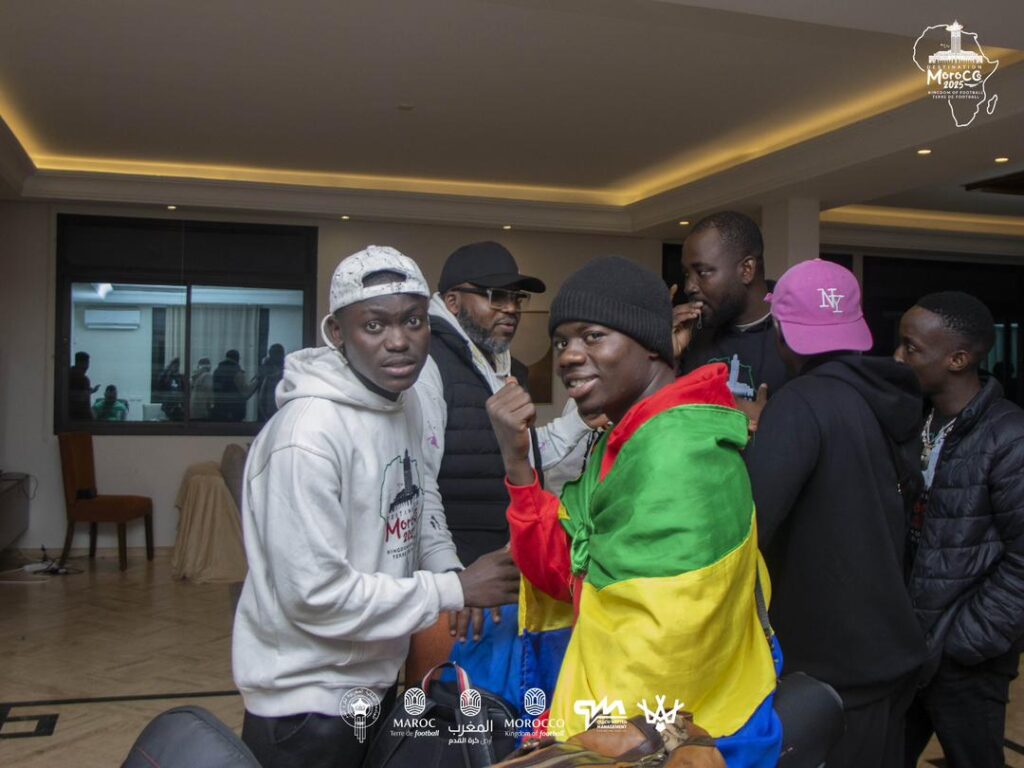
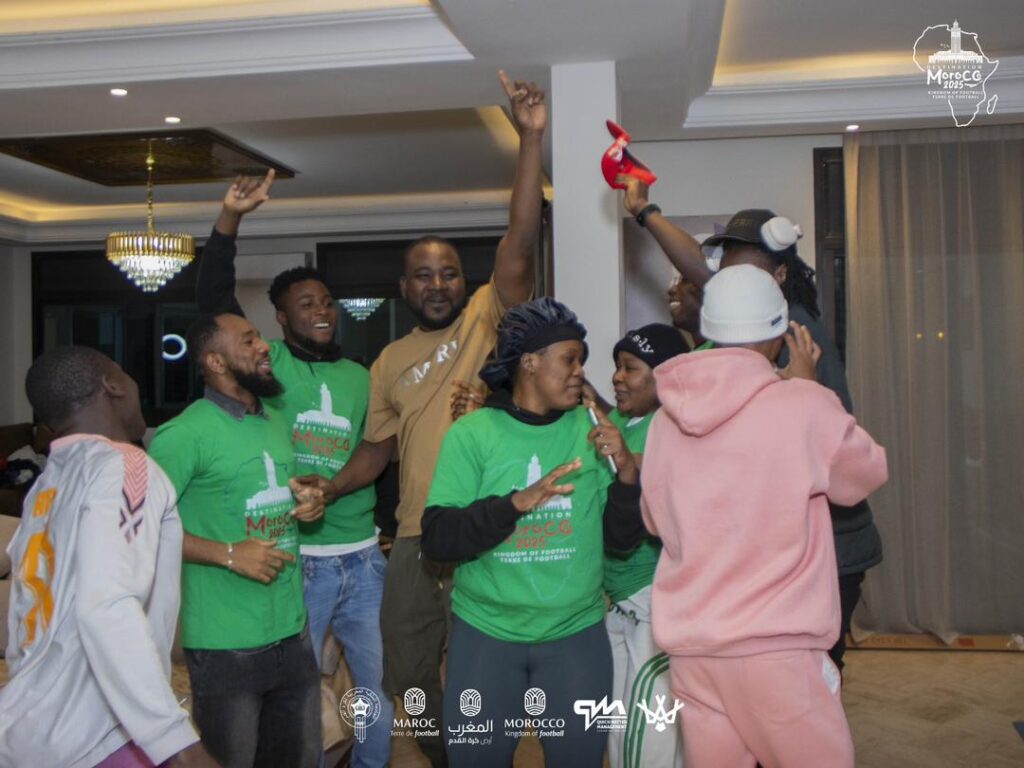
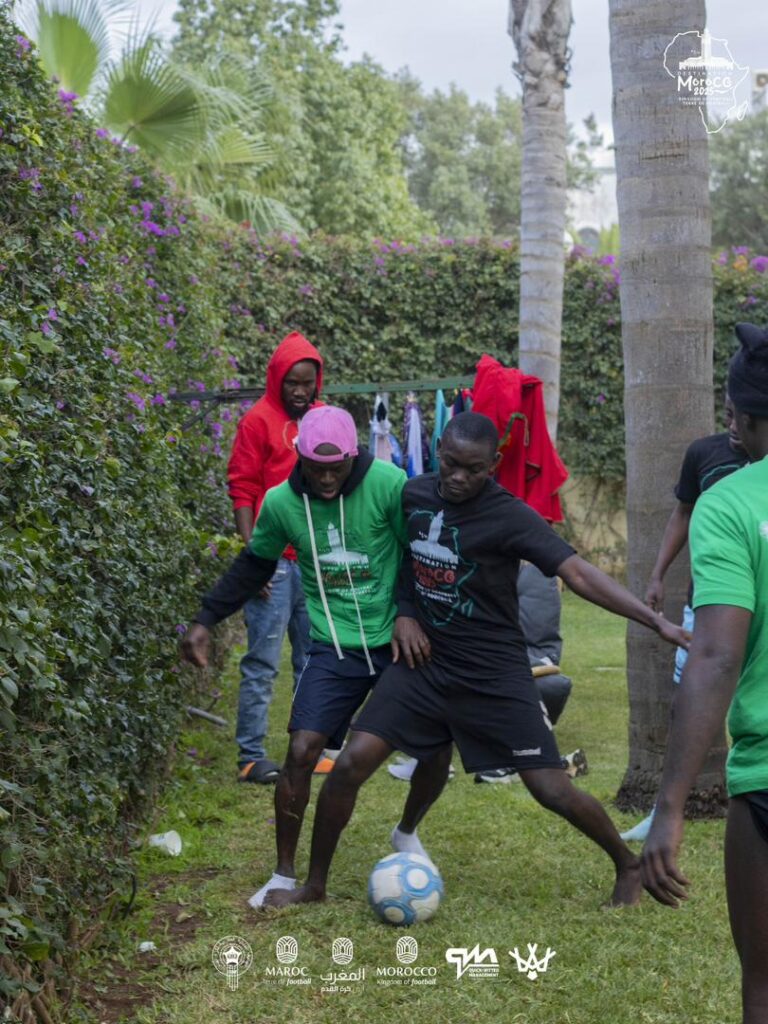
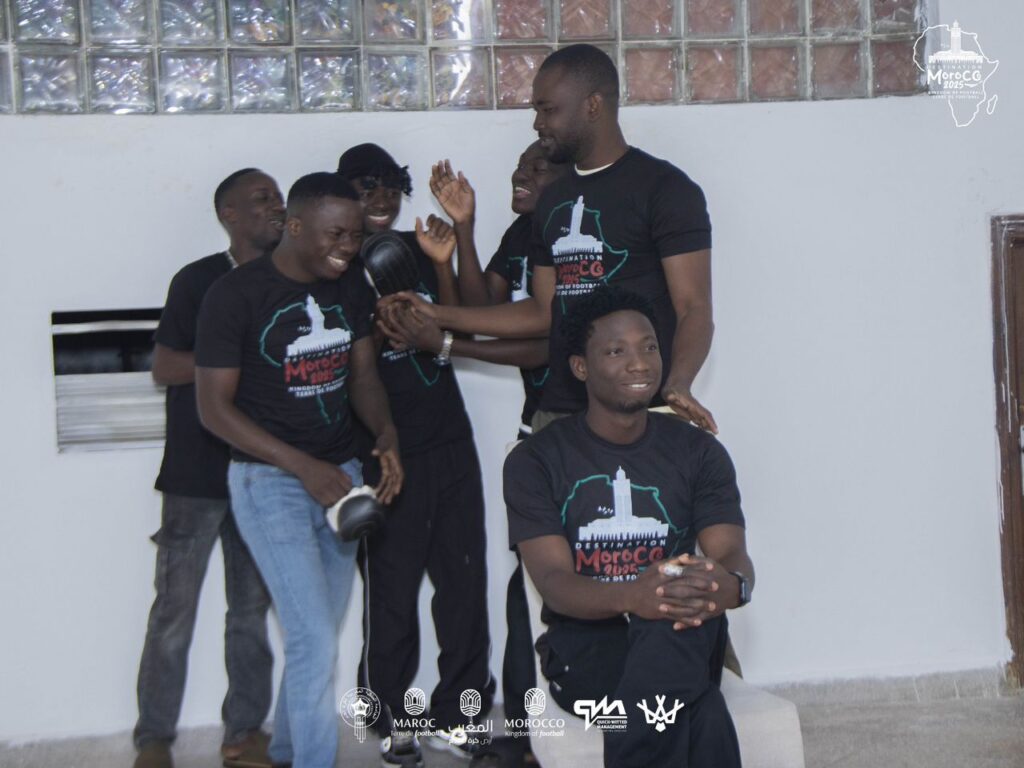
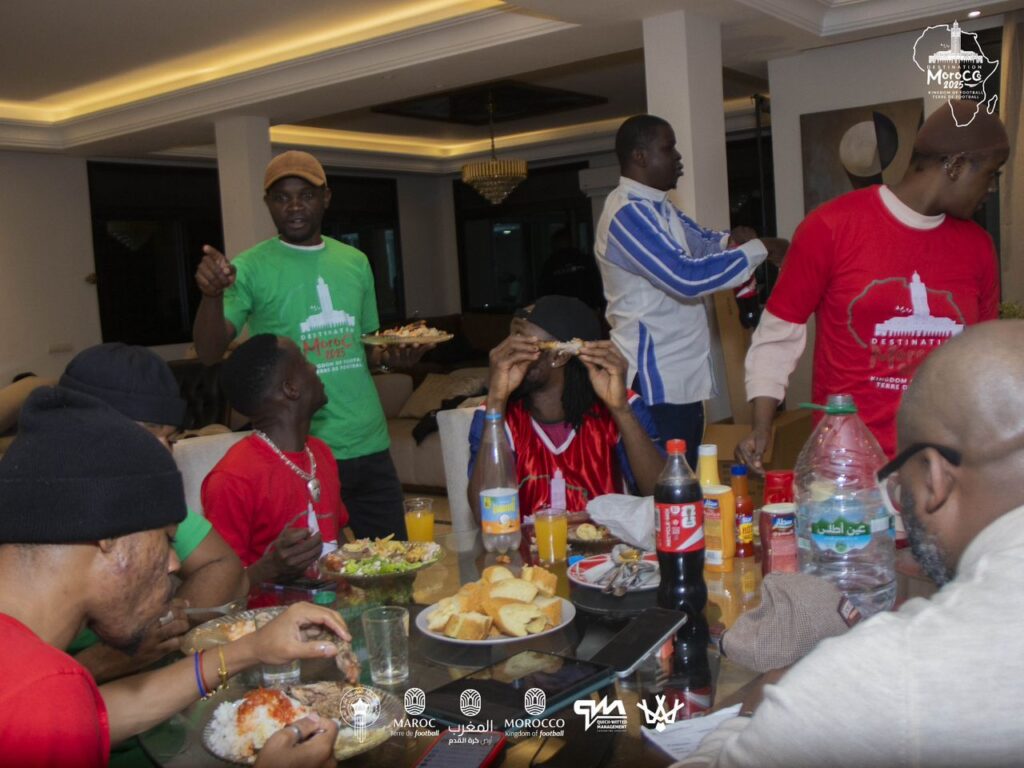
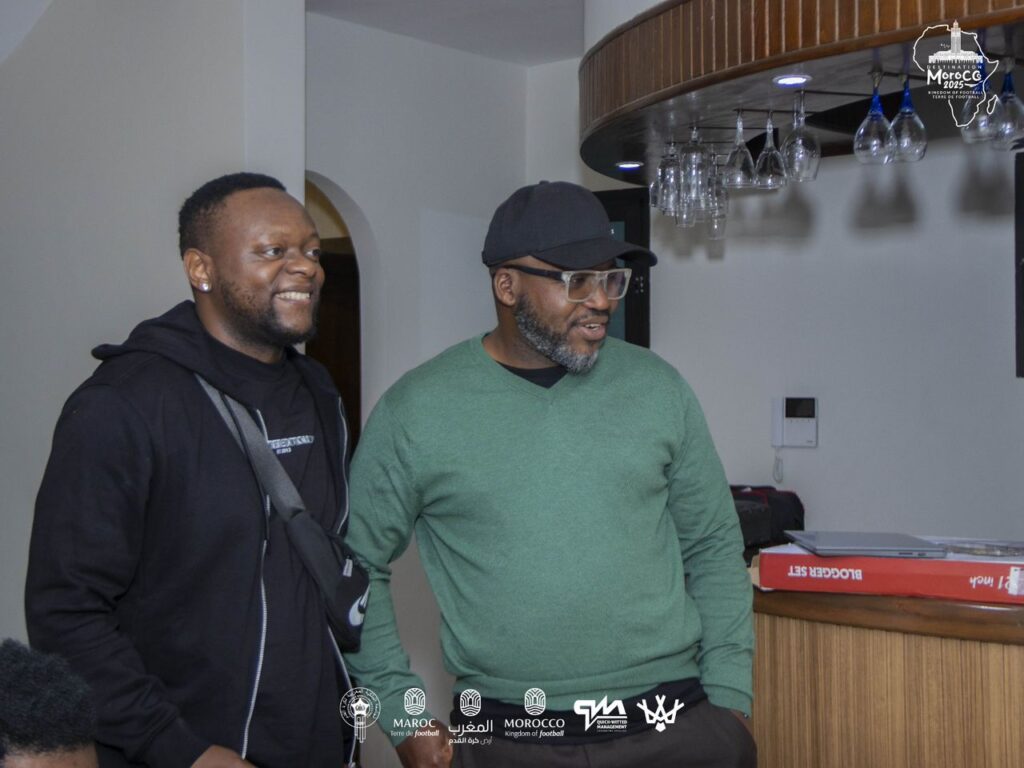
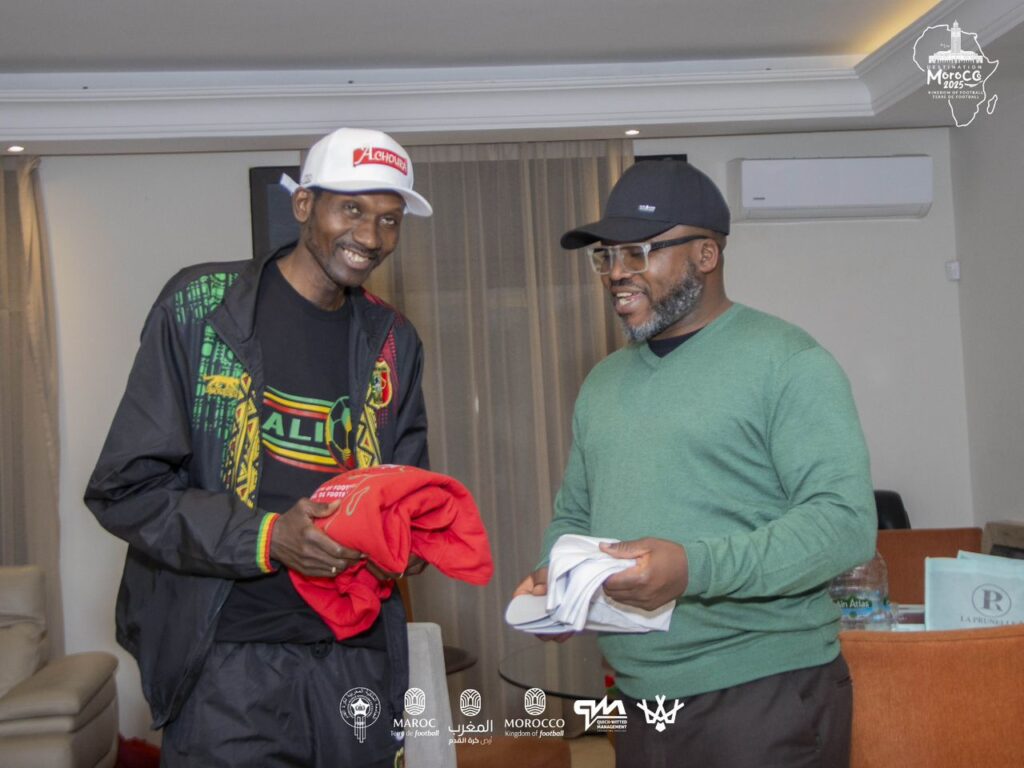

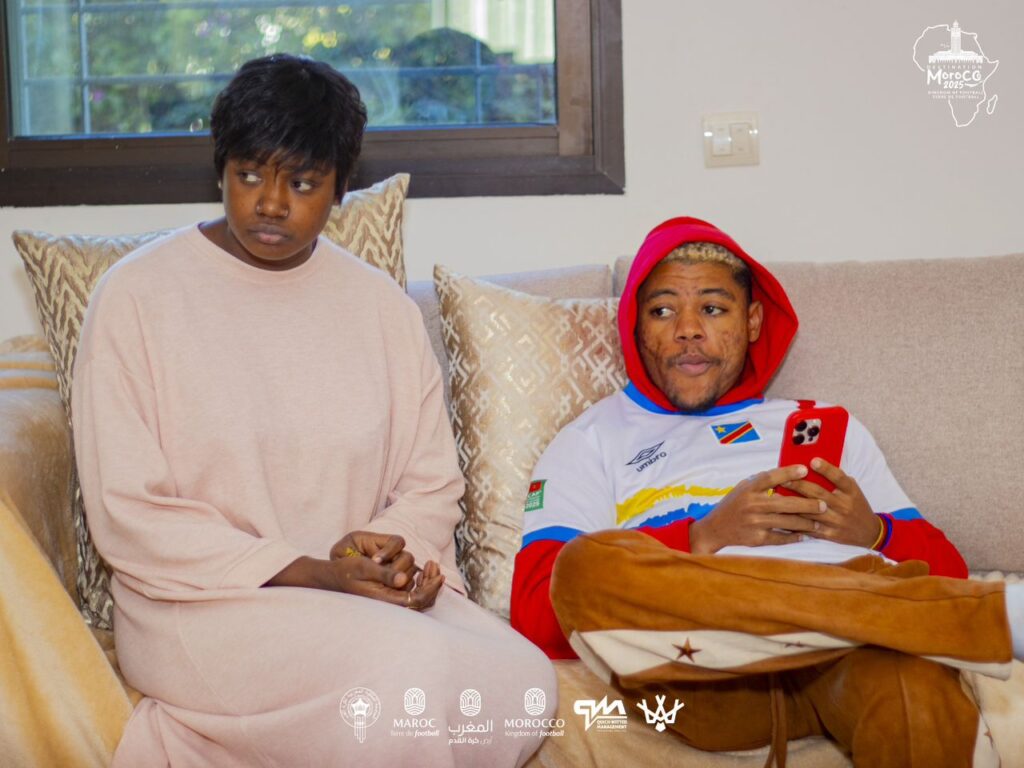
After AFCON 2025 final, Morocco calls for calm and strengthens ties with Senegal
Following the AFCON 2025 final between Morocco and Senegal, Moroccan authorities reaffirmed their commitment to calm and dialogue. This approach was highlighted during an official meeting held on January 26, 2026, in Rabat between Moroccan Head of Government Aziz Akhannouch and Senegalese Prime Minister Ousmane Sonko.
The meeting took place within the framework of the 15th session of the Morocco–Senegal Joint High Commission. Both sides reaffirmed the strength of bilateral relations and their shared determination to further develop cooperation in multiple sectors.
Discussions emphasized the values of fraternity, solidarity and mutual respect that characterize relations between Morocco and Senegal, beyond the football context.
The meeting was presented as a strong signal of appeasement and continuity in the strategic partnership between Rabat and Dakar, in line with a shared African vision.
Press release
On Monday, January 26, 2026, in Rabat, Head of Government Aziz Akhannouch held talks with his Senegalese counterpart, Ousmane Sonko, who was on a working visit to Morocco as part of the 15th session of the Joint High Commission of the Moroccan-Senegalese Partnership. These talks took place in the presence of the Minister of Foreign Affairs, African Cooperation, and Moroccans Abroad, Mr. Nasser Bourita, as well as the Ambassador of the Kingdom of Morocco to the Republic of Senegal, Mr. Hassan Ennassiri.
During these exchanges, the two parties reaffirmed the commitment of the Kingdom of Morocco and the Republic of Senegal, as well as their constant willingness to raise bilateral cooperation to multidimensional levels, in accordance with the guidelines of the leaders of both countries, His Majesty King Mohammed VI, may God assist him, and His Excellency President Bassirou Diomaye Faye. The two parties also stressed that Morocco and Senegal will remain faithful to the spirit of fraternity, solidarity, and respect that they have dedicated to serving the African continent, while also praising the role of the Moroccan community residing in Senegal and the Senegalese community living in Morocco in strengthening the exceptional partnership between the two countries.
The Head of Government praised the close human, religious, and economic ties between the two nations, illustrated in particular by the eight visits made by His Majesty the King, may God preserve him, to Senegal. He also highlighted the central role played by the Republic of Senegal in royal initiatives aimed at consolidating development in Africa, notably the Royal Initiative to facilitate access for Sahel countries to the Atlantic Ocean.
This meeting was an opportunity to note the qualitative evolution of ministerial exchanges, the enrichment of the legal framework governing bilateral cooperation, and the strengthening of economic partnership and investment since Mr. Bassirou Diomaye Faye became President of the Republic of Senegal. The 15th session of the High Joint Commission of the Moroccan-Senegalese Partnership provides a timely opportunity to strengthen sectoral cooperation between the two countries through the implementation of structural projects in the fields of agriculture, energy, trade, and the digital economy, among others.
King Mohammed VI praises success of AFCON 2025 hosted by Morocco
At the end of the 2025 Africa Cup of Nations, held in Morocco from December 21, 2025 to January 18, 2026, King Mohammed VI praised the overall success of the tournament and the national mobilization that contributed to its organization. In an official statement from the Royal Cabinet, the King expressed his gratitude to Moroccan citizens and institutions for their exemplary commitment to the event.
Press release from the Royal Cabinet
At the conclusion of the 35th edition of the Africa Cup of Nations, enthusiastically hosted by the Kingdom of Morocco from December 21, 2025, to January 18, 2026, His Majesty King Mohammed VI, may God assist him, wishes to express his gratitude to all members of the nation who contributed admirably to the complete success of this magnificent event.
His Majesty the King would particularly like to congratulate all citizens throughout the Kingdom’s cities for their efforts and thank each and every one of them for their wonderful contribution to this historic success, which has been recognized and praised around the world.
The Sovereign extends his compliments to the millions of Moroccans, women, men, and children who have continued to support, each in their own way and always in an exemplary manner, their national team, now ranked 8th best in the world. This remarkable result is the fruit of a proactive, high-level sports and infrastructure policy, as well as the patriotic choice made by the talented children of Moroccans around the world to wear the national team jersey and defend its colors with pride and panache.
This edition of the continental competition will go down in history because, beyond its excellent sporting results, it has demonstrated the qualitative leap that the Kingdom has made on the path to development and progress, the result of a long-term vision and a unique and successful Moroccan model that places the citizen at the center of all ambitions.
Therefore, even if this great continental football festival hosted by the Kingdom seems to have been sadly marred by the unfortunate episode in the final minutes of the final match between the national teams of Morocco and Senegal, during which regrettable incidents and deplorable acts occurred, the fact remains that once the passion has subsided, inter-African brotherhood will naturally reassert itself, because Morocco’s success is also Africa’s success. Morocco remains proud to have offered, on its soil, a month of popular joy and sporting excitement, and to have contributed to the influence of Africa and its football.
Furthermore, in the face of denigration and attempts to discredit him, His Majesty the King, may God assist him, remains convinced that hostile intentions will never succeed, that the Moroccan people know how to weigh things up and will not allow themselves to be drawn into resentment and discord. Nothing can alter the close ties cultivated over centuries between our African peoples, nor the fruitful cooperation built with the various countries of the continent and strengthened by ever more ambitious partnerships.
The Kingdom of Morocco is and will remain a great African country, faithful to the spirit of brotherhood, solidarity, and respect that it has always cultivated towards its continent. In accordance with the Sovereign’s enlightened vision, Morocco will continue its determined and constant commitment to a united and prosperous Africa, in particular through the mutual sharing of its experiences, expertise, and know-how.
AFCON 2025: Moroccan government publicly backs Brahim Diaz after missed penalty
Following Morocco’s 1–0 defeat to Senegal in the AFCON 2025 final, Brahim Diaz received public support from the Moroccan government. The forward missed a late panenka penalty during the match played in Rabat.
During a parliamentary session, Prime Minister Aziz Akhannouch addressed Diaz directly, highlighting his performance throughout the tournament. Diaz finished AFCON 2025 as the top scorer with five goals.
The Prime Minister also emphasized the player’s commitment to Morocco after choosing to represent the national team.
AFCON 2025: Nigeria FA president denies clash with Fouzi Lekjaa
The Nigeria Football Federation has denied rumors claiming that its president, Ibrahim Musa Gusau, was involved in an altercation with CAF vice-president Fouzi Lekjaa during an Executive Committee meeting held in Morocco.
In an official statement, Gusau described the reports as a “total lie,” stressing that no dispute took place with the president of the Royal Moroccan Football Federation. He also dismissed any controversy regarding the refereeing of the Nigeria–Morocco semi-final.
Gusau praised the organization of AFCON 2025, calling it a successful and memorable tournament for African football.
Why Morocco’s success continues to spark controversy across Africa
Morocco’s rise in African and global football has once again drawn criticism following the 2025 Africa Cup of Nations. Allegations of institutional favoritism circulated even before the tournament began, despite the lack of credible evidence.
These claims contrast sharply with Morocco’s recent achievements on the pitch, including a historic semi-final run at the 2022 FIFA World Cup and continued success in youth competitions.
Morocco’s progress is rooted in long-term investment, infrastructure development, and governance reforms. As the country prepares to co-host the 2030 FIFA World Cup, its upward trajectory continues to shape debates across the continent.
AFCON 2025: Senegalese supporters cause chaos in the Morocco–Senegal final
The AFCON 2025 final, held in Rabat on Sunday, January 18, ended with Senegal defeating Morocco 1-0. The match was overshadowed by violent incidents involving Senegalese supporters in the stands.
Supporters damaged barriers, threw chairs, and attempted to enter the pitch. Several stewards and photographers were injured. One steward was taken on a stretcher to the hospital with severe jaw injuries, according to journalist Hanif Ben Berkane (Foot Mercato).
Law enforcement intervened to restore order. While Senegal won the title, these incidents tarnish the conclusion of a tournament praised for its organization and scale.

